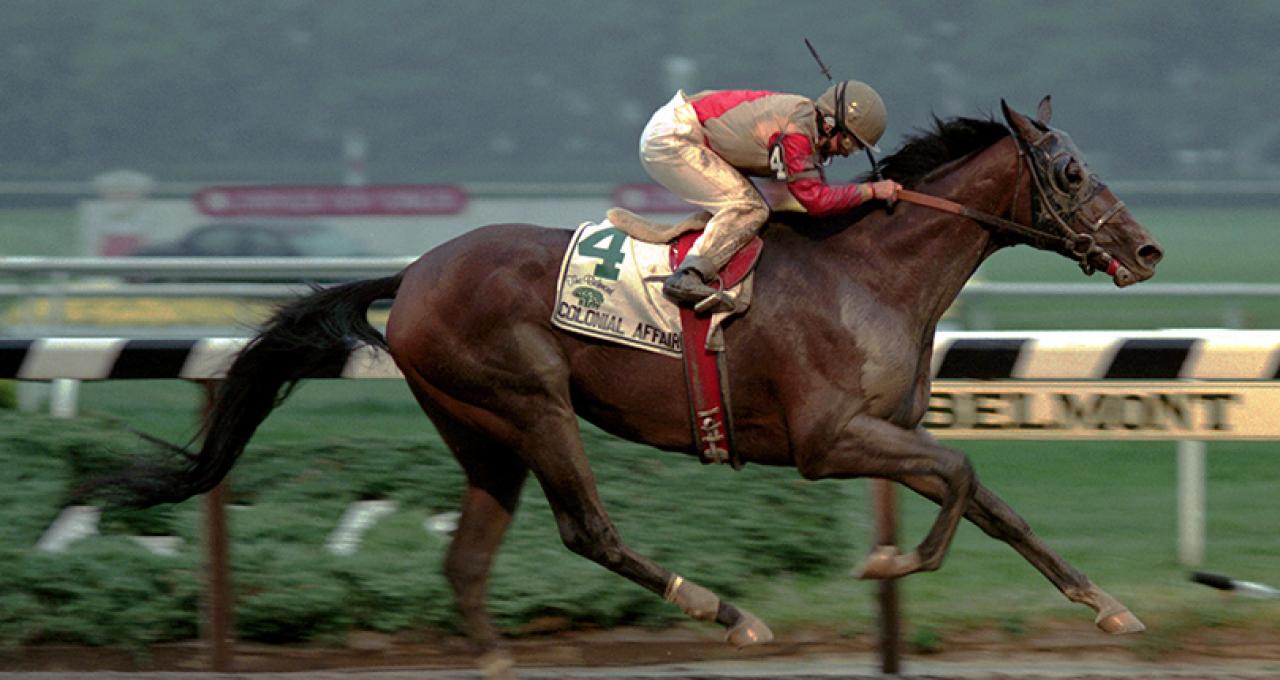
In Their Own Words: Julie Krone Rides Into History With Colonial Affair
by Tom Pedulla
Paid banners below are not related to Belmont Stakes Ticket Sales.
The New York Racing Association is presenting a weekly series of diaries to help celebrate the 150th Belmont Stakes on Saturday, June 9 at Belmont Park. “In Their Own Words” features prominent owners, trainers and jockeys as they re-live some of the most stirring moments in the rich history of the “Test of the Champion.”
The series opened with trainer Todd Pletcher reflecting on history-making filly Rags to Riches (2007). Cot Campbell, an innovator in establishing racing partnerships, described Palace Malice’s 2013 triumph as the “mother of great moments” for him.
Ogden Phipps II told of how much Easy Goer’s romp meant to his famous racing family when they denied Sunday Silence’s Triple Crown bid in 1989. Marylou Whitney, celebrated as the “Queen of Saratoga” and one of the most prominent women in racing history, re-lived Birdstone’s upset of Triple Crown threat Smarty Jones in 2004, calling it “the most glorious day of my life.”
Steve Cauthen wrote of the thrill of being 18 years old and riding Affirmed past Alydar three times for the Triple Crown in 1978 in one of the great rivalries in all of sports.
Still to come:
- Ahmed Zayat recounts the 2015 romp that allowed the great American Pharoah to end the longest drought in Triple Crown history.
- Ron Turcotte reflects on one of the great athletic feats of all time, human or equine, when Secretariat moved “like a tremendous machine” in 1973.
Here is the sixth installment:
By Julie Krone with Tom Pedulla
I knew when Colonial Affair was a 2-year-old that he would win the 1993 Belmont Stakes. He was a tall, gangly kid, kind of silly, always messing around. He was great fun, definitely one of my favorite horses of all time. I will always appreciate it that the late Scotty Schulhofer, his Hall of Fame trainer, trusted me to work with him and to help develop him.
Colonial Affair had a gorgeous stride. He could just go forever. I helped teach him to relax in the early part of the race and to do a better job of focusing. Sharing that growth with him, I almost felt like a college professor. It was a joy to mold him into the horse he would become.
When he turned 3, I could feel the difference in him. His stride was stronger. He became a horse that really understood what racing was about. He got serious the week of the Belmont Stakes. Everybody who watched him train was like, “Somebody’s grown up.”
His last breeze was so good I could not wait for the Belmont Stakes to arrive. I was so confident. Everything was as perfect as it could be for me, including the fact that Steve Cauthen, whose success inspired me to be a jockey, was one of the television commentators.
Colonial Affair was acting like Godzilla by the time we got into the starting gate. He was so pumped up and determined. He knew what it was all about, and he knew what he was going to do.
He broke perfectly and I went straight to the rail. I wanted to make sure I saved all of the ground I could on a wet track and settled him into that awesome stride he had.
The wet track was challenging for everyone. Mud was dripping from Colonial Affair’s blinkers and I felt him getting a little sad. It was as if he was asking me, “How much more of this do I have to bear before you get me in the clear?”
I made a quick move to get him out for the run around the final turn. He immediately brightened because he could see daylight. He grabbed the bridle again.
I wanted to make sure I stayed patient. I did not want to make the lead too early. I started nudging Colonial Affair. He responded in a big way, just as I hoped he would. We made the lead and, I admit, I blew my cool a bit. I was hitting him right-handed and he was drifting in, drifting in toward the rail. Then I got my cool back and we were home free by 2 ¼ lengths.
I had won the Belmont with Colonial Affair, just as I knew I would from the first times I rode him. So many thoughts went through my mind. I thought of my mother, Judi, who was home in Florida and was battling cancer. I thought of my own rewarding journey. I began to cry tears of joy. I remember telling the outrider, “When do I stop crying?”
It was raining when I reached the winner’s circle, and yet it felt like a beautiful, sunny day. I could not wait to get to the jockeys’ room to call my mother.
“How cool was that?” I asked her.
“I just peeled myself off the ceiling,” she said. “That was amazing.”
It was amazing. I had become the first female jockey to win a Triple Crown race. When you first do it, the history you made does not sink in right away. I had another race to ride, so I was thinking about that. When my big day was finally over, I celebrated with a slice of pizza.
Over time, I came to appreciate the meaning of my historic ride. Twenty-five years later, girls still come up to me and say, “You inspired me so much. You let me know a girl could do it.”
That means everything.


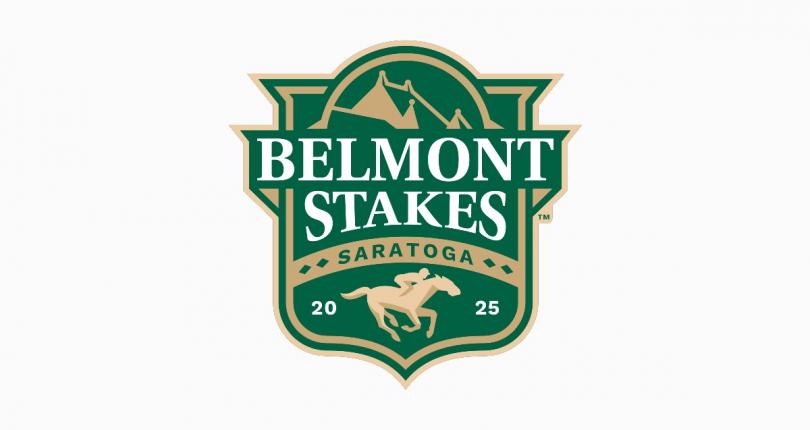
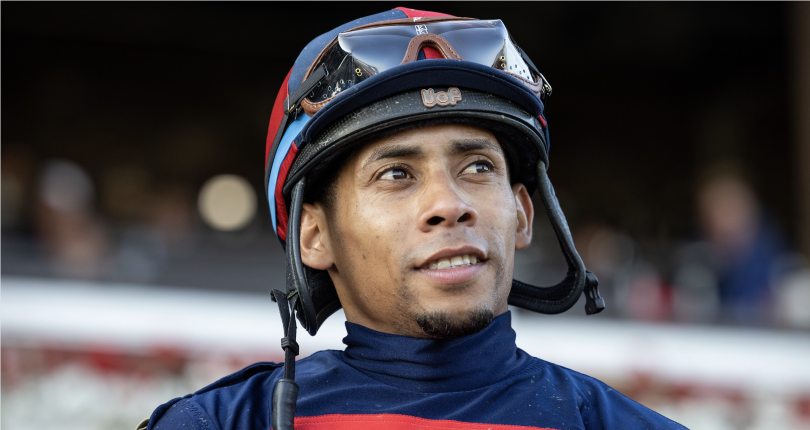
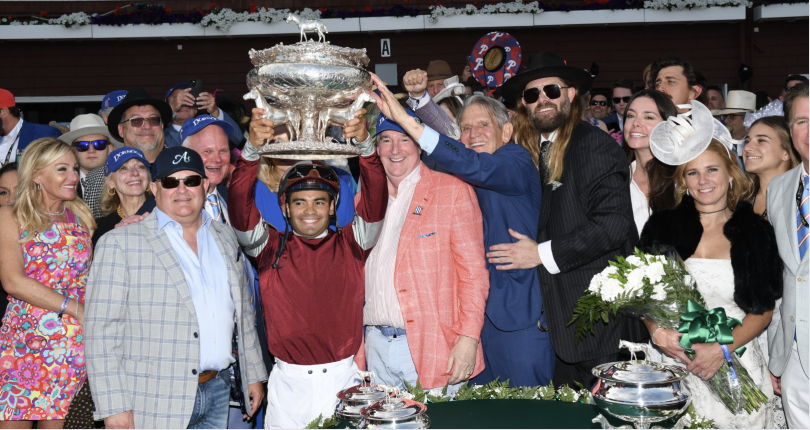

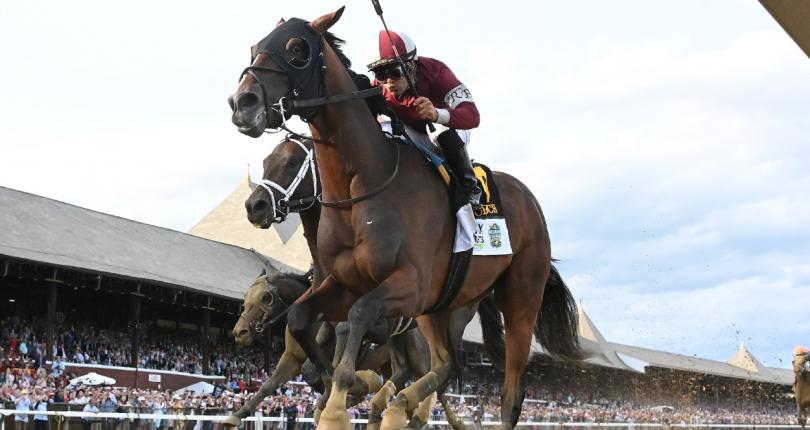
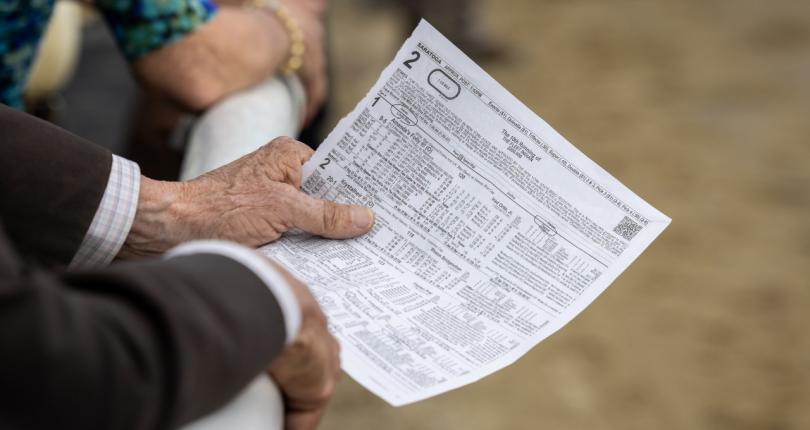
 Gambling Problems? The New York Racing Association encourages responsible wagering. If gambling is a problem for you or someone you care about, help is available 24 hours a day. Scan here to talk with someone now about your gambling. Or call toll-free 1-877-8-HOPE-NY.
Gambling Problems? The New York Racing Association encourages responsible wagering. If gambling is a problem for you or someone you care about, help is available 24 hours a day. Scan here to talk with someone now about your gambling. Or call toll-free 1-877-8-HOPE-NY.